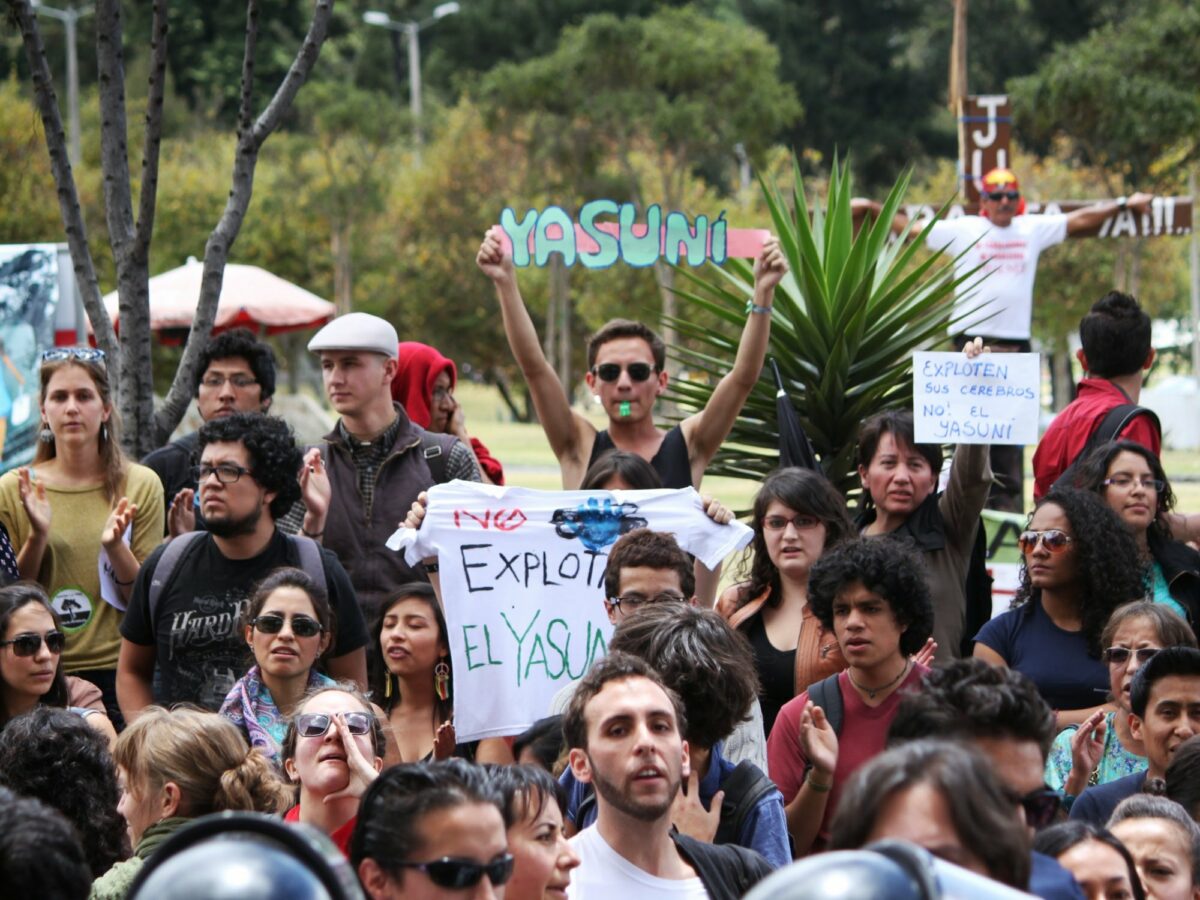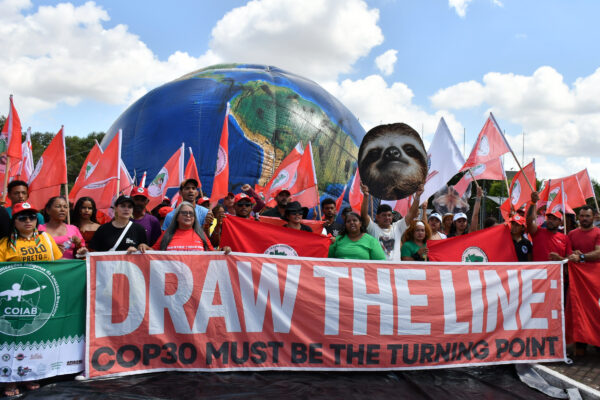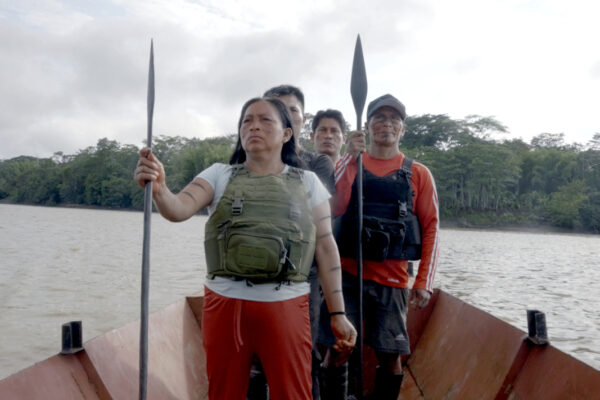Defenders of Yasuní National Park in the Ecuadorian Amazon, one of the most biologically diverse places on the planet, have two new reasons to hope that oil drilling in the region could be imminently curtailed.
A recent Ecuadorian court decision may revive a major civil society effort to prevent drilling of the ITT (Ishpingo, Tambococha, Tiputini) fields, after the government’s Yasuní-ITT preservation proposal failed to obtain hoped-for funding that would have left the 900 million barrels of crude permanently in the ground. The government approved drilling in 2013 and began production at over 100 wells, with at least 400 more planned.
However, after eight years, an Ecuadorian election court ruled that signatures gathered in 2014 to force a national referendum vote on drilling of the country’s largest oil reserves inside of Yasuní National Park were valid, reversing previous decisions that subverted the will of voters. The decision will put the issue on the February ballot.
The Yasunidos collective led a national effort eight years ago to gather signatures that would have placed the question, “Do you agree that the Ecuadorian government should keep the ITT oil fields, known as Block 43, indefinitely in the ground?” on the ballot. Advocates submitted over 750,000 signatures, well over the required threshold of 400,000. But the government rejected hundreds of thousands of signatures as invalid, despite documented irregularities and accusations of fraud in the signature auditing process.
On September 6, 2022, the court finally ruled that the signatures that had been rejected were in fact valid and that the rights of the petitioners had been violated, and justices cleared the way for a potential referendum to move forward. The National Election Committee (CNE) certified that enough signatures were gathered, and all that remains is for the Constitutional Court to approve the wording of the question, which is not expected to change. If approved, the question will be on the February 2023 ballot for Ecuador’s national midterm elections, along with several other referendum questions proposed by President Guillermo Lasso.
The decision is a major victory for democracy in the country, recognizing that the right to participation of 700,000+ people in the electoral process was denied and can be restored. It also vindicates the claims of Yasunidos and outside observers that former President Rafael Correa manipulated the process to keep the referendum off the ballot and move ahead with drilling.
Unfortunately, eight years after the signatures were submitted, oil extraction in the ITT fields is now well underway. Current output is at 53,750 barrels per day, and state-run Petroecuador has drilled some 153 wells, with hundreds more planned. Meanwhile, Petroecuador continues to carve an access road through remote rainforest, only 400 meters from a “no-go-zone” designated for the Tagaeri-Taromenane, some of Ecuador’s last Indigenous peoples living in voluntary isolation.
A yes vote on the referendum, if it goes before voters, could bring an abrupt end to drilling in ITT. But it’s just the latest effort that could upend current drilling and plans for expansion. A case now before the Inter-American Court on Human Rights on the impact of drilling and other extractive activities on the Tagaeri-Taromenane, and the government’s failure to guarantee their rights as isolated peoples, could redraw the boundaries of the current no-go zone, effectively restricting drilling activity in seven oil blocks that overlap Yasuní National Park.
All eyes are on the CNE to certify the signatures and the Constitutional Court to approve the question and advance it without delay. Eight years have already been lost, and Yasuní and its world-renowned biodiversity have already suffered irreparable damage. The Tagaeri-Taromenane face ongoing rights violations and an existential threat from current drilling and planned expansion. Though delayed, the court’s decision is an important advance that strengthens civil society’s use of the right of direct democracy guaranteed in the country’s 2008 constitution. And, it just might keep the country’s largest fossil fuel reserves in the ground – an essential part of any scenario of limiting warming to 1.5°C.
¡Que viva Yasunidos! ¡Que viva Yasuní!













